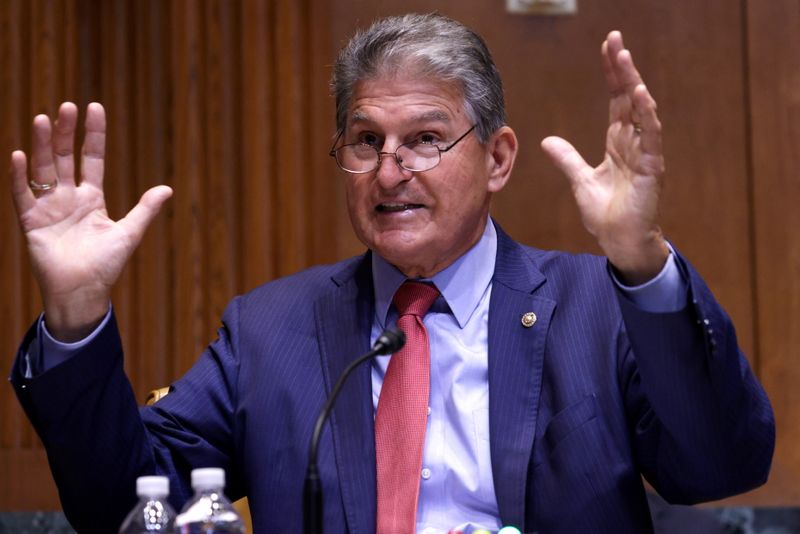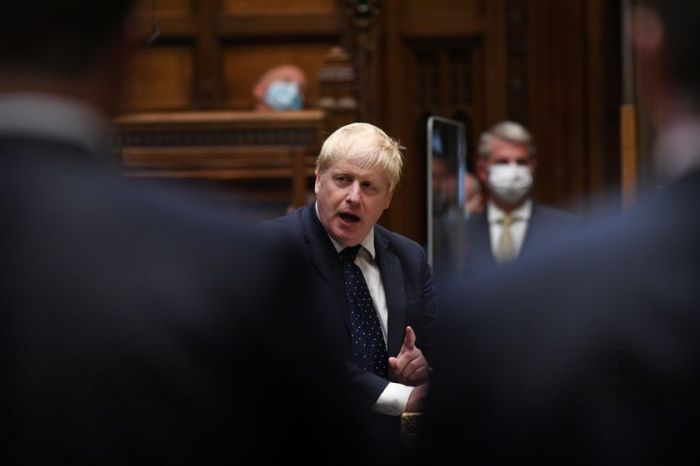WASHINGTON (Reuters) -U.S. Senator Joe Manchin on Sunday said lawmakers were unlikely to pass their massive budget package by Democrats’ Sept. 27 deadline, adding that he could support a smaller $1.5 trillion bill.
Manchin, a West Virginia moderate who has urged a “pause” on fellow Democrat U.S. President Joe Biden’s $3.5 trillion domestic spending plan, said while he supported some provisions such as universal preschool, he did not back clean energy and other measures.
The plan would also have to include a “competitive tax code” to help pay for it, he told CNN, adding he could support a domestic spending bill costing between $1 trillion and $1.5 trillion.
House Speaker Nancy Pelosi had agreed to hold a Sept. 27 vote on a separate bipartisan $1 trillion infrastructure bill. While Biden and Pelosi had hoped to pass both bills together, centrist House Democrats had objected and pressed for a vote on funding for roads and other projects first.
That could push back a vote on the domestic spending bill as Democrats continue to hammer out a final number even as congressional committees move ahead with drafting portions of the package.
“There’s no way we can get this done by the Sept. 27 if we do our job,” he said on CNN’s “State of the Union” program.
“We don’t have the need to rush into this and get it done within one week,” he separately told NBC News’ “Meet the Press” program. “I could not support $3.5 trillion,” he added.
Democrats have floated various ways to pay for the so-called reconciliation spending package, including taxing stock buybacks.
Manchin said while he supported raising taxes on companies, the bill must have “globally competitive” tax rates, including citing a 28% capital gains tax rate, a 25% corporate net rate and a 15% minimum corporate tax rate, telling CNN: “They should all pay something.”
Democrats maintain a narrow grip on Congress, with Vice President Kamala Harris holding a tie-breaking vote in a 50-50 split Senate and a six-seat edge in the U.S. House of Representatives.
Those tight margins mean every Senate Democrat must be on board to pass most bills that lack Republican support.
“I don’t think that I am the lone vote” against the $3.5 trillion plan, Manchin told NBC.
Senator Bernie Sanders, an independent who caucuses with the Democrats and holds large sway over the party’s progressive wing, separately said he believed both the infrastructure and the domestic spending bills would garner enough votes.
“It would really be a terrible, terrible thing for the American people if both bills went down and that is a real danger,” Sanders said. Asked if he believes ultimately both bills would pass, he told ABC’s “This Week with George Stephanopoulos” program: “I believe they will yes.”
(Reporting by Susan Heavey; additional reporting by Humyra Pamuk; Editing by Lisa Shumaker)




















